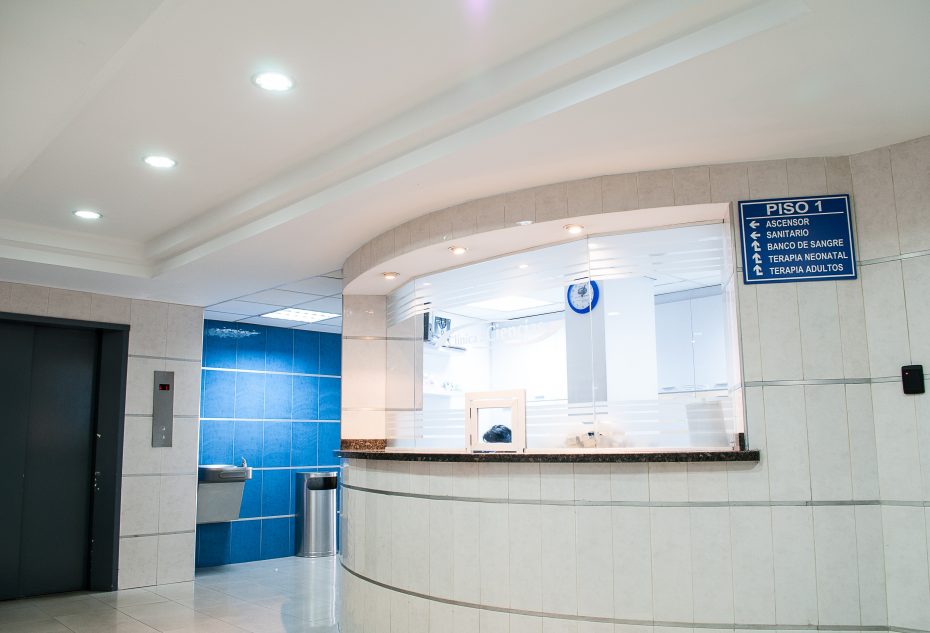If you run a care facility, you have most likely already experienced tension and conflict as a result of disruptive visitors.
These kinds of disturbances may occur as the result of any number of factors. The emotional stress of seeing a loved one aging quickly, having unmet expectations, or even misunderstanding standard policy of your facility can all cause visitors to act out and cause disorder.
In any case, it’s important to know how to handle disruption – and more importantly, to prevent conflict – or worse – from happening in the first place.
Visitor Disruption: Your Best and Worst Case Scenarios
The ideal visitor experience goes smoothly: Visitors check in at your front desk at appointed hours, and respect your center’s schedule for meal times, medical care, and other activities.
Ideally, visitors to your care facility are helpful, encouraging, and accommodating of staff and protocol.
But sometimes, visits don’t go as expected. And while residents of the care facility can cause trouble, unfortunately, the visitors themselves can also cause tension, disturbances, or worse.
A visitor may simply start an argument with one of your staff members or your front desk receptionist over a matter of scheduling or care. Or, he or she may insist on seeing a family member that doesn’t want to see them.
But sometimes, disruption can manifest as a graver situation: A conflict can escalate into an explosive, even violent argument. Or in other cases, your visitors may be behaving in a way that is actually putting your residents in danger.
In one visitor “horror story,” the spouse of a dying resident at a care facility was actually feeding her a dangerous mix of medications through her feeding tube, in hopes that it would “cure her.”
Of course, every care facility hopes to fully avoid this kind of scenario. But if the situation arises, there are certain practical steps that every facility can take to properly deal with – and prevent – visitor disruption.
First, Put out the Fire
If you do find yourself in the situation of hosting a particularly problematic visitor, you’ll want to immediately focus on resolving the conflict.
First, try to remain in a place of being empathetic to the visitor. Consider how challenging it could be to watch a spouse, parent, sibling, or close friend live in a care facility. Try to pay attention to what they are feeling, and attempt to create a safe space for both the visitor and patient.
Consider also that all residents have a legal right to hosting visitors at any “reasonable hour.” Visitors have a right to be in your care facility, even if they are behaving unreasonably.
In most cases, it’s possible to diminish a situation without outside interference, such as the police. But prevention is always a better plan.
A Preventative Plan for Visitor Disruption
Your care facility may be handling a relatively high volume of visitors each day, each of them with varying temperaments, expectations, and backgrounds.
That being said, it may feel overwhelming or even unrealistic to prevent a visitor from acting out or starting conflict, given the range of situations that can arise.
Still, There are preventative steps that every care facility can take to help ensure an environment that is conflict-free and safe for residents, other visitors, and staff. Click To Tweet
Craft a Visitor Policy
As stated before, residents of your care facility have the right to receive visitors at any reasonable hour. Still, you can craft a visitor policy that works for both your facility and your visitors, ensuring a smooth experience.
Your visitor policy may include stipulations or suggestions such as the following:
- While residents may receive visitors at any “reasonable hour,” you may suggest that visitors be mindful of specific hours that could be inconvenient – such as meal times or scheduled medical care.
- Visitors who are sick should be discouraged from coming, as the spread of infection can occur quickly in a care facility.
- Visitors should read the safety and emergency procedures before spending time in the facility. This includes what to do in the case of a fire or other natural disaster, and how to help keep the facility clean (and residents healthy).
- Visitors who learn or overhear sensitive information regarding your facility or other residents are expected to keep this information private.
- Visitors are expected to respect staff protocol for care, meal times, hygiene, and other daily activities.
- Visitors who would like to address a concern can do so with a specified staff member (such as the director of the care facility).
- Visitors are expected to respect the personal space of all residents.
You can make these stipulations clear to incoming visitors at the front desk, using a visitor management system such as The Receptionist.
When visitors are made immediately aware of these expectations and guidelines, they may be less likely to cause disruption when conflict or tension arises, knowing that there are pre-set rules that address their concerns and behavior.

Train Staff on De-Escalation Techniques
In the case that visitors read the protocol and still behave disruptively, you’ll want your staff to be prepared to de-escalate the situation.
Conflict can feel intimidating to deal with, especially in the case of a family member or friend who turns combative. However, there are certain techniques that anyone can use to help change the tone of the situation:
- As stated above, trying to remain empathetic to the visitor is important. Your staff members may even benefit from an empathy training.
- Use a low tone of voice, regardless of what the visitor is saying.
- Listen to the visitor. Allow him or her to voice their concerns fully, even if they are irrational.
- Use non-confrontational body language and words.
Being mindful of these approaches and tools before conflict begins is critical. That way, when disruption arises, your staff will be calm and prepared.
Integrate Visitor Management into Check-out and Check-in
A final measure that you can use to prevent disruption is to use a visitor management system in your care facility.
A visitor management system can help benefit your facility (and your visitors) in the following ways:
- Allows visitors to check in automatically on an iPad. The system will also remember previous visitors, so they don’t have to re-enter information each time they come to the center.
- Helps communicate valuable information to visitors that can help prevent conflict, such as a visitor policy.
- Frees up your staff to better address the concerns of both residents and visitors.
- Gives visitors who speak a different language the information they need in their native language, reducing the risk of confusion and frustration.
- Notifies staff members automatically via email, text message, or another messaging application that visitors have arrived.
This kind of a system provides for an overall smoother visitor experience, and reduces administrative stress on your staff.
Happy Visitors, Healthy Facility
In the end, your care facility deserves an environment that is healthy for patients, visitors, and staff. By taking a few simple measures, you can help create an atmosphere that is agreeable and communicative – preventing the unwanted possibility of disruption or worse.

Share this Post

